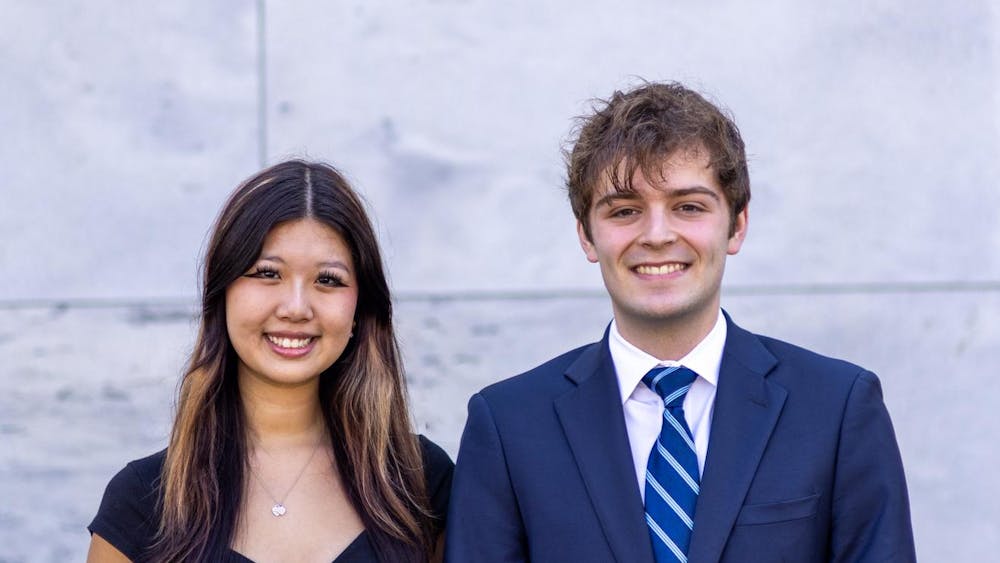Oliver Wendell Holmes Jr. — a champion of free speech but a racially conservative Supreme Court justice — believed the First Amendment created a marketplace for the “free trade in ideas.” It’s the hallmark of our Constitution, and it affords everyone the right to profess their beliefs and make contributions to our constitutional marketplace. That said, do Nazi flags and racial epithets really contribute to that “free trade in ideas?” Courts have frequently answered in the affirmative.
But there should be little doubt about whether hate speech provides truth-seeking insights worthy of constitutional protection. Hate speech can concisely be defined as speech and modes of speech attacking people or a class of people on the basis of their attributes. Protecting it welcomes the denigration of certain people, and there is a difference between preserving a social atmosphere premised on meaningful dialogue and one that purely promotes prejudice. Placing hate speech on equal constitutional footing with political discourse and other forms of meaningful speech is fundamentally inapposite. Not only is it time for the country to do a little political soul searching, it’s also time to reevaluate the First Amendment’s contours.
Last month, a storm of torch-bearing white supremacists descended upon the University of Virginia in Charlottesville. Reminiscent of one of Hitler’s Nuremberg Rallies, the individuals, like some off-brand Gestapo, confidently chanted Nazi slogans (such as “Sieg Heil”) and shouted racial slurs in a fruitless effort to save a statue of Confederate Gen. Robert E. Lee. It was a dormant volcano waiting to erupt, and, sure enough, it did. Only when the smoke cleared could we properly gauge the significance of the social meltdown. In the end, the events left one counter-protester dead and others wounded.
Those two days were harrowing. Time stood still. The protests in Charlottesville strike at the core of our constitutional values; they challenge us to reconcile our principles concerning equality with the freedom of assembly and the freedom of speech. Under current constitutional doctrines, hate speech falls within the aegis of the First Amendment. For example, in R.A.V v. St. Paul, the U.S. Supreme Court invalidated a city ordinance prohibiting people from displaying racially-charged gestures. This decision effectively overturned a man’s conviction for burning a cross on a black family’s lawn.
The Constitution should not protect that type of hate speech.
South Africa and Great Britain, which also have shaky histories of racial inequality, forbid hate speech. Germany, albeit unsurprisingly, has outlawed hate speech and the expression of any opinion attacking human dignity, including Nazi slogans. Legal scholars have argued that, through the confluence of the First and Fourteenth Amendments, the Constitution forbids this form of speech.
We owe no fealty to scholars or another nation’s laws, but even the Supreme Court has established certain content-based exceptions to the First Amendment’s protection. Specifically, it doesn’t protect speech that’s "of such slight social value ... that any benefit that may be derived from [it] is clearly outweighed by the social interest in order and morality."
For instance, fighting words — those words “whose very utterance inflict injury or tend to incite an immediate breach of the peace” — possess little to no social value because their purpose is to inflict harm or incite violence; therefore, such expressions fall outside the First Amendment’s purview. In Chaplinsky v. New Hampshire, applying the fighting-words doctrine, the Supreme Court upheld a criminal conviction for publicly calling someone a “damned fascist.”
Likewise, hate speech — disparaging remarks about someone’s race, religion or sexual orientation — also lacks social value; it inflicts emotional harm, while potentially inviting physical harm; it perpetuates the notion that one race is superior to all others, undermining our basic constitutional values of equality. To borrow Justice Byron White’s words, this is “not a means of exchanging views, rallying supporters or registering a protest; [it’s] directed against individuals to provoke violence or to inflict injury.” For these reasons, the country’s interest in preserving social order and morality outweighs the trifling benefits being derived from protecting hate speech.
Charlottesville is an example of how real-world events cause constitutional friction and how constitutional doctrines can conflict with people’s moral principles. It poses vexing questions that wethe people must resolve. Wrestling with these issues is hard, and determining the right answers is even harder. We all aim to discover truth (whatever that may be), and trading ideas freely, having unrestrained, constructive dialogue, might help people reach their desired ends.
The First Amendment forever preserves that right, but prejudiced, hate-filled speech provides no meaningful contribution to our “free trade in ideas.”
If we are to ever shed history’s shackles and continue venturing towards “a more perfect Union,” we need to reevaluate our guiding lights. The First Amendment pushes the needle sewing racism into the fabric of our society. It’s time we redefine its parameters.
White’s concurrence, in R.A.V v. St. Paul, provided a potential solution for the hate-speech issue. Observing it through the lens of the fighting-words doctrine, White believed burning a cross in someone’s lawn fell outside the First Amendment’s protection and was therefore proscribable. Rather than formulating a novel rule, White simply applied the fighting-words exception to the hate-speech context. From his view, fighting words and hate speech were analogous; these words are “worthless and undeserving of constitutional protection” because their sole purpose is to inflict harm by verbally attacking someone on the basis of their attributes.
Under his theory, only private, direct, interpersonal insults would be proscribable. Construing the content-based exception narrowly would prevent other forms of expression, like political speech or speech criticizing white-supremacist ideologies, from being chilled. White’s formulation, of course, needs further refinement and won’t completely solve all the problems surrounding hate speech, as racist or disparaging political remarks fall outside the exception.
Nonetheless, the fighting-words doctrine provides a starting point. The First Amendment already doesn’t protect speech that incites violence or riots, so the synergy between that principle and the fighting-words exception could enable courts and legislatures to delineate meaningful restraints on hate-filled rhetoric.
Admittedly, time and again courts have refused to endorse White’s formulation and apply the fighting-words exception to hate speech; protecting this speech is firmly rooted in our constitutional history. So, when bearing in mind the principles of stare decisis and a court’s reluctance to overrule prior decisions, relying on the judiciary may prove futile.
But even though courts have continuously endorsed this proposition, it doesn’t foreclose the debate. After all, Article Five enables us, the people, to “propose amendments to this constitution.” In Federalist No. 43, James Madison wrote, “useful alterations will be suggested by experience, could not but be foreseen.” The Framers understood not only the importance of free speech, but also the importance of altering constitutional precepts for an ever-evolving society. They anticipated change and furnished us with a constitution designed to deal with it.
If the courts won’t alter the First Amendment’s parameters, then we should resort to our safety valve: a constitutional amendment. It’s less romantic than a earth-shattering court decision, like in Brown v. Board of Education or in Obergefell v. Hodges; it requires much more political cooperation between the governing branches. Hence, citizens tend to forget or undervalue its importance. Still, a constitutional amendment is a vessel to effectuate change, which would enable us to officially codify White’s proposed hate-speech exception. Doing so would leave the First Amendment in place, as a finely crafted amendment would only alter its parameters, not completely abrogate it.
It’s been 226 years since the First Amendment was ratified; it’s time we stop letting it defend hate speech.
Jonathan Hamrick is a School of Law student from Atlanta.
Read More
Trending









